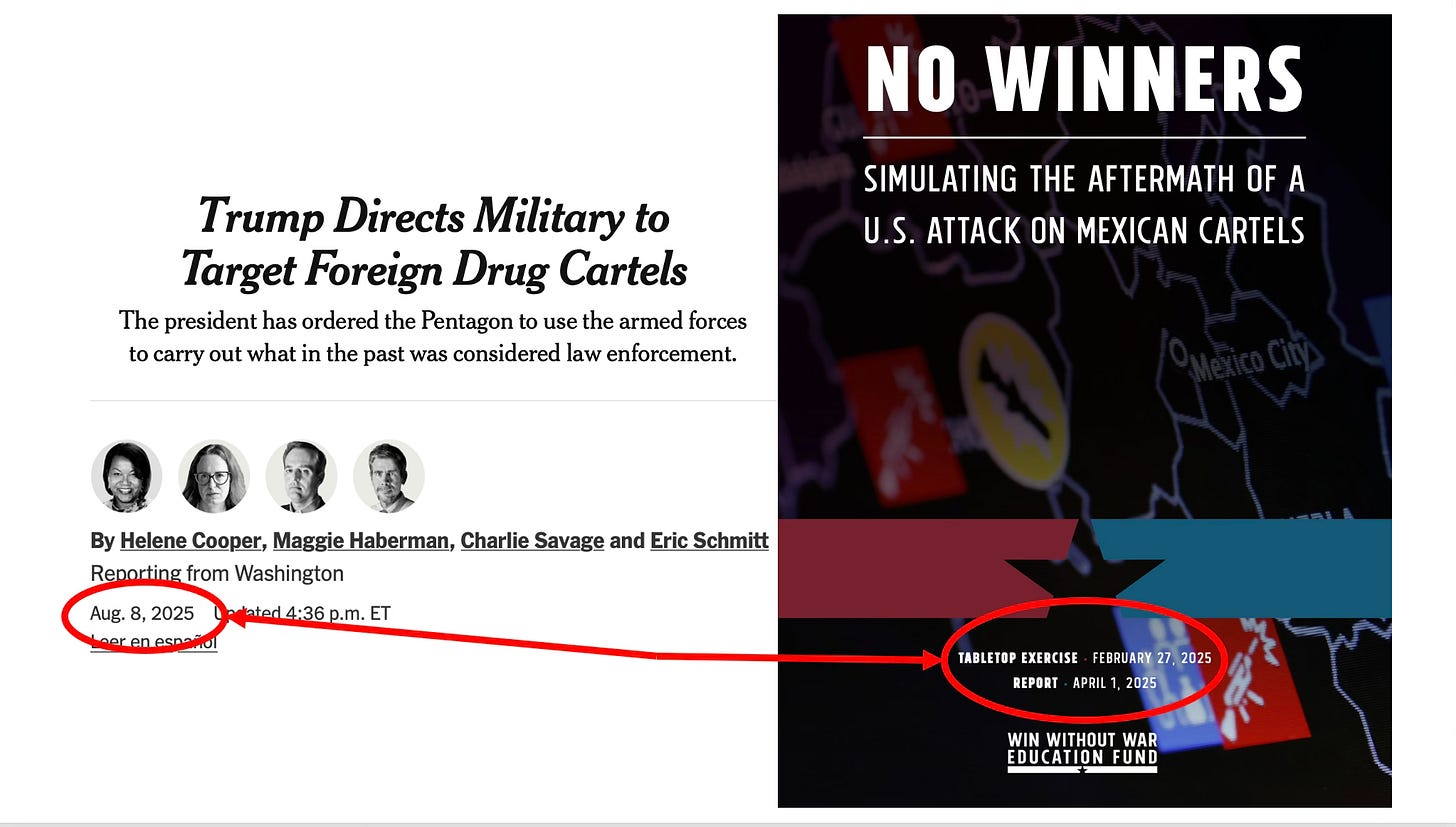Wargaming Scenario: MAGA Versus The Cartels
The tabletop exercise everyone in Washington must read.
You might’ve heard that Trump just signed an executive order directing the US military to conduct operations against cartels in Latin America.1
What you almost certainly didn’t hear is that this exact scenario was gamed out months ago, and it revealed disastrous consequences.
In February, Win Without War, one of the few but mighty sites for progressive fo…


